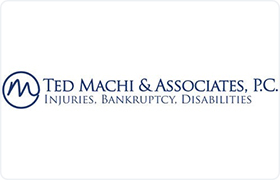Hutchins Collection Lawyer, Texas, page 2
Sponsored Law Firm
-
 x
x

Click For More Info:
-
Machi & Associates, P.C.
1521 North Cooper Street Suite 550 Arlington, TX 76011» view mapAccident & Injury, Bankruptcy, Social Secuirty We Fight So You Don't Have To
Our professional team of attorneys and staff provide the experience and expertise needed to effectively handle your case.
800-804-0771
Thaddeus G. Fenton
Government, Collection, Bankruptcy & Debt, Administrative Law
Status: In Good Standing
Robert D. McCutcheon
International, Intellectual Property, Energy, Collection
Status: In Good Standing Licensed: 31 Years
Misti L. Beanland
Construction, Corporate, Collection, Bankruptcy
Status: In Good Standing Licensed: 28 Years
 Ted Machi Arlington, TX
Ted Machi Arlington, TX Practice AreasExpertise
Practice AreasExpertise
